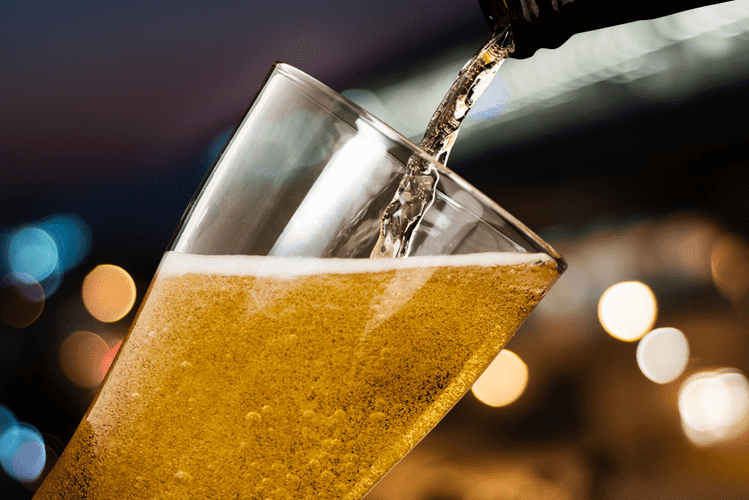But treatment varies based on the severity of alcohol withdrawal and the likelihood that it could progress to severe or complicated withdrawal. Creating a structured plan including more resources and increased self-care builds a strong foundation for recovery. Depending on how much you drink and for how long, one rule of thumb is to avoid cutting more than 25% of your drinking intake at a single time to avoid withdrawal symptoms. Paramount Recovery Centers, situated in Massachusetts, stands as a leading option for those seeking treatment for alcohol withdrawal.
Can you die from alcohol withdrawal symptoms like delirium tremens?
People who continue to drink a lot may develop health problems such as liver, heart, and nervous system disease. Over time, if you regularly drink heavily, the central nervous system gets used to the suppressing effect of the alcohol, which means your brain is affected if the alcohol level suddenly drops. You can go straight into ‘fight or flight’ mode as the alcohol leaves your system, even when there’s no danger present. Find out what they are and what you should do if you are experiencing them. The people closest to you can offer emotional support, encouragement, and accountability, helping you stay focused on your goals.
The timeline for alcohol withdrawal varies from person to person, depending on factors such as their level of alcohol dependence, the amount of alcohol consumed, and how long they have been drinking. Withdrawal symptoms can begin within a few hours to a few days after the last drink. Patients who experience more severe withdrawal (i.e., who have CIWA-Ar scores of 8 to 15 or greater) should receive pharmacotherapy to treat their symptoms and reduce their risk of seizures and DT’s.

Nalmefene for Alcohol Addiction Treatment: How It Works, Uses, Dosage, Side Effects, Alternatives
- But, perhaps most importantly, understand that setbacks happen and that progress takes time or may look different than imagined.
- There are multiple health benefits you can experience when you start drinking less alcohol.
- Mild symptoms of alcohol withdrawal can include a headache, mild anxiety, insomnia, and gastrointestinal discomfort.
- Behavioural treatment programs, inpatient rehab, partial hospitalization programs, and intensive outpatient therapy are all options for those seeking help.
- If you are concerned you might be dependent on alcohol, you should seek medical advice to help you cut down and stop drinking safely.
- In severe cases, you’ll need hospitalization where medication effectiveness can be closely monitored.
Whether you’re struggling to stop or just feeling overwhelmed, reaching out now protects your future—you’re never too early or too late to begin. Delirium tremens (DTs) is the most severe symptom of alcohol withdrawal and can lead to death. It often occurs two to three days after the last drink and is more common in older people.
If you have a severe alcohol addiction, it might be best to seek professional addiction treatment. Slowly tapering your alcohol use can help you manage mild withdrawal symptoms and decrease the risk of AUD. However, you may experience withdrawal symptoms or relapse if you’re not tapering correctly and safely. Finally, it’s important to know that you don’t need to go through this process alone. There are many forms of support out there, including online programs like Ria Health. Our medical team can help you design a plan to taper off alcohol from home, prescribe medications to manage cravings, and support you in establishing new habits afterwards.
How important is medical supervision during alcohol withdrawal?
People who want to reduce their alcohol consumption often do not realize how much of their social and daily routines alcohol has become. Tapering alcohol may be uncomfortable, and there may be subconscious triggers that stimulate the desire to drink alcohol. Stress is a common trigger that makes it hard to modify your alcohol intake. Finding a different, more healthy way to unload stress may go a long way in helping someone succeed in cutting back on their alcohol use. But, going through withdrawal is often challenging—and it’s OK if you find the process difficult. Although you might beer withdrawal symptoms be tempted to tough out withdrawal symptoms by yourself, it’s not worth the risk.
Therefore, it is advisable https://ecosoberhouse.com/ to seek medical advice and support when quitting alcohol, especially if you have been a heavy or dependent drinker. Nearly half of individuals with AUD who abruptly stop or reduce alcohol intake experience signs of alcohol withdrawal (1). Psychological effects such as anxiety, irritability, depression, and intense cravings for alcohol are common. While most people experience mild symptoms, severe withdrawal symptoms impact about 3-5% of people.
- When you quit drinking beer, you will become sufficiently hydrated, which will positively impact your overall health, skin, hair, and well-being.
- Such treatments are offered in group as well as one-on-one environments, offering vital backing and techniques for coping.
Delirium tremens (DTs) is a severe form of alcohol withdrawal that can be life-threatening, with about 5-10% of people experiencing this complication dying from it. If you or someone you know is experiencing concerning symptoms of alcohol withdrawal, go to the nearest emergency room or call your local emergency service number. It is important to seek medical help if you or someone you know is experiencing AWS symptoms. Healthcare providers can diagnose AWS based on a physical exam, symptoms, alcohol use history, and medical history. Blood tests and an EKG (electrocardiogram) may also be recommended to check for health complications caused by alcohol use. Treatment options vary depending on the severity of AWS and can include supportive environments, short-term medications, pharmacotherapy, and adjunctive therapies.
Mild symptoms of alcohol withdrawal can include a headache, mild anxiety, insomnia, and gastrointestinal discomfort. If you are experiencing mild alcohol withdrawal, you may not need medical intervention. Your provider may prescribe medications such as carbamazepine or gabapentin to help with symptoms. A supportive environment, such as support from friends and family, may be enough to help you manage your symptoms.
Keep the big picture in mind through a goal such as reducing your drinking overall in a week, month, or year,” Dr Lee said. Dr Lee explains that choosing a non-alcoholic beer or a caffeinated beverage can help provide a small buzz. Generally, light to moderate drinkers should plan to taper for a week or more. No content on this site, regardless of date, should ever be used as a substitute for direct medical advice from your doctor or other qualified clinician. Alcohol withdrawal is one of the first steps in what tends to be a longer process of readjustment.

Tapering Off Alcohol
Dehydration, electrolyte imbalances, brain lesions, and liver dysfunction worsen symptoms by disrupting bodily systems. Co-occurring substance abuse and certain medications, like benzodiazepines, further complicate withdrawal, increasing its severity and risks. If untreated or inadequately treated, withdrawal can progress to generalized tonic-clonic seizures, delirium tremens, and Sober living house death.
What Is Alcohol Tapering?
Alcohol withdrawal can cause a range of symptoms, from mild to severe, and in rare cases, it can even be life-threatening. While most people with mild to moderate alcohol withdrawal do not require hospital treatment, severe cases can result in lengthy hospital stays and intensive care. Therefore, preventing relapse is a critical aspect of alcohol withdrawal and long-term recovery. At River Rock Treatment, we provide specialized care for individuals going through alcohol withdrawal. Our team of medical professionals creates personalized treatment plans that address both physical symptoms and underlying mental health concerns.
